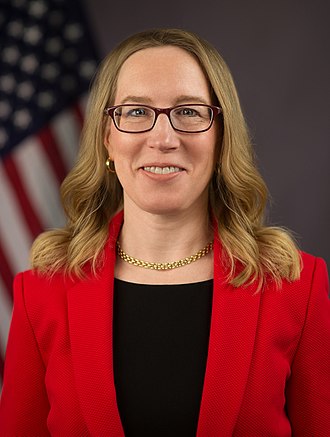United States Securities and Exchange Commissioner Hester Pierce, also known as ‘Crypto Mom,’ came out and said what everyone has been thinking on February 8. In a speech on state Regulation at the University of Missouri School of Law, she postulated that the United States government’s delays in creating and enforcing official regulation may have provided the cryptocurrency industry with more freedom to grow and develop independently.
“We might be able to draw clearer lines once we see more Blockchain projects mature,” Peirce said. However, for now, a “delay in drawing clear lines may actually allow more freedom for the technology to come into its own.”
She also commented on the lengthy process of regulating a new industry, and the fact that taking longer amounts of time to regulate is better than hastily moving forward with regulations that could potentially harm the industry.
I look forward to working with you @SECJackson to open the doors to innovation, but we're not a merit regulator issuing seals of approval, so let's encourage investors to do their own work to decide whether an investment is right for them: https://t.co/iMA7NUkLRp
— Hester Peirce (@HesterPeirce) February 7, 2019
“If we act appropriately, we can enable innovation on this new frontier to proceed without compromising the objectives of our securities laws — protecting investors, facilitating capital formation, and ensuring fair, orderly, and efficient markets,” she said. In other words, slow and steady wins the race.
Some Crypto Projects Have Been Rendered "Unworkable" by Existing Securities Laws
Peirce even went so far as to suggest that in some respects, the industry may already be facing over-regulation. She said that some cryptocurrency companies have struggled to make progress because “[existing] securities laws make them unworkable.”
She added that while the industry may have benefitted from the US government’s non-action on cryptocurrency adoption, the government’s attitude toward creating cryptocurrency regulations hasn’t always been healthy.
“We rightfully fault investors for jumping blindly at anything labelled crypto, but at times we seem to be equally impulsive in running away from anything labelled crypto,” she said. “We owe it to investors to be careful, but we also owe it to them not to define their investment universe with our preferences.”

SEC Comissioner Hester Peirce, aka "Crypto Mom."
Peirce also said that the US Congress could end the ambiguity around cryptocurrency laws by creating a new legal classification for digital assets.
Peirce earned her title as ‘Crypto Mom’ after publicly dissenting against the SEC’s decision to deny the Winklevoss twins’ application for a Bitcoin ETF. Earlier this year, Peirce said that she was working to convince her colleagues “to have a bit more of an open mind” around the possible passage of a cryptocurrency ETF.
Industry Attitudes on the Need for Regulation Vary
The issue of cryptocurrency regulation has been a dicey conversation within the industry. Many companies around the world have called for their governments to create more regulations, thus creating a sort of “path to legitimization” as cryptocurrency itself makes the transition from “magic internet money” to a legitimate transactional tool and investment.
On the other hand, many legitimate companies in the industry have benefitted from the freedom that a lack of regulation has permitted.
“The competitor who goes toward the unregulated market will make more profit,” he said, “and be able to capture what is currently feasible. The person who goes through the regulated market–two years later, when he gets approval, his product will be obsolete,” said Leverj.io CEO Bharath Rao in an interview with Finance Magnates conducted last year.
“This is the real barrier, that it’s just not worth trying to get regulatory approval because it just takes so long.”
Rao argued that the nascent nature of the global blockchain industry has managed to benefit from a bit of “space” to move around within regulatory frameworks. “I think we actually have a happy middle ground in blockchain technology where you can comply with the spirit of the regulations in [essentially] all jurisdictions, even if you’re not complying with the letter [of the law].”

Bharath Rao, Founder and CEO of Leverj.io.
“If you look at all the case laws in the US, in Europe, and in the UK, it doesn’t matter if you are complying with the letter of the law if you break the spirit of the law. However, if you comply with the spirit of the law, but not the letter of the law, you just get a letter telling you to fix it in most cases.”


















